Best Omnisend Alternatives For Shopify in 2025

Comparison Matrix
Summary of Pros and Cons of Omnisend Alternatives
- Omnichannel (Email, SMS, Push, WhatsApp) with volume-based pricing
- Excellent and consistent customer support across all tiers
- Personalized onboarding and white-glove migration for all users
- Takes user feedback to roll out new features quickly
- Automation and segmentation are not as advanced
- Analytics is less granular than some competitors
- Smaller template library
- Powerful automations and segmentation
- Highly intuitive UI and easy navigation
- Excellent customer support
- Feature-rich: reviews, UGC, referrals, loyalty + email/SMS bundles
- Drag-and-drop email builder with AI recommendations
- No web Push
- Expensive (starts at $368/month for Email/SMS)
- Confusing pricing structure tied to order volume
- Faulty A/B testing and glitchy email builder reported
- Basic UX issues like clunky pop-up design
- Clean, visual email builder
- Strong segmentation and prebuilt ecommerce workflows
- Reliable customer support
- A/B testing and attribution tracking included
- No SMS or Push
- No free plan (only 14-day trial)
- Setup can be buggy with a learning curve
- Onboarding + migration is only available in high-tier plans
- Combines Email, SMS, and review tools
- Excellent deliverability with dedicated servers
- Strong support across all plans + assigned reps on higher tier
- Straightforward campaign builder
- No Push notifications
- Limited integrations with key ecommerce tools
- Advanced analytics and reporting are not as detailed
- Lacks transparency in pricing for business tiers
- SMS trial not included in the free tier
- Excellent SMS automation and segmentation
- Personalized support for premium plans
- Intuitive SMS builder and campaign templates
- Clean analytics for SMS performance
- Limited to SMS only; no Email or Push
- Support varies drastically across pricing tiers
- Unclear SMS credit usage rules
- Users report being billed even with zero usage
Are Omnisend Alternatives Cheaper?
.avif)
PushOwl
Shopify stores love PushOwl because it is easy to set up and use, and it is cost-effective. It covers numerous automated flows for back-in-stock reminders, ACRs (abandoned cart recovery), flash sales, price-drop reminders, and email newsletters.
However, PushOwl’s most significant pro is its personalized customer support. Not only is onboarding and migration a part of every plan (unlike other Omnisend alternatives that only provide this feature for the high-end plans), but customer support is available at all times.
.png)
Unlike support channels that require you to rehash the problem each time the issue is escalated, PushOwl keeps the issue open even after resolution, so a customer support representative can follow up.
.png)
Your setup time is reduced to minutes because you have someone walking you through the entire process.
Another pro of PushOwl is that it takes user feedback to roll out features across the product, as this review describes:
.png)
Let’s do a TL;DR of the above review:
Here are some of the complaints related to PushOwl:
G2 ranks PushOwl a solid 9.6 based on its ease of use, thanks to its intuitive drag-and-drop automations and pre-built workflows specifically built for Shopify stores.
.avif)
Yotpo
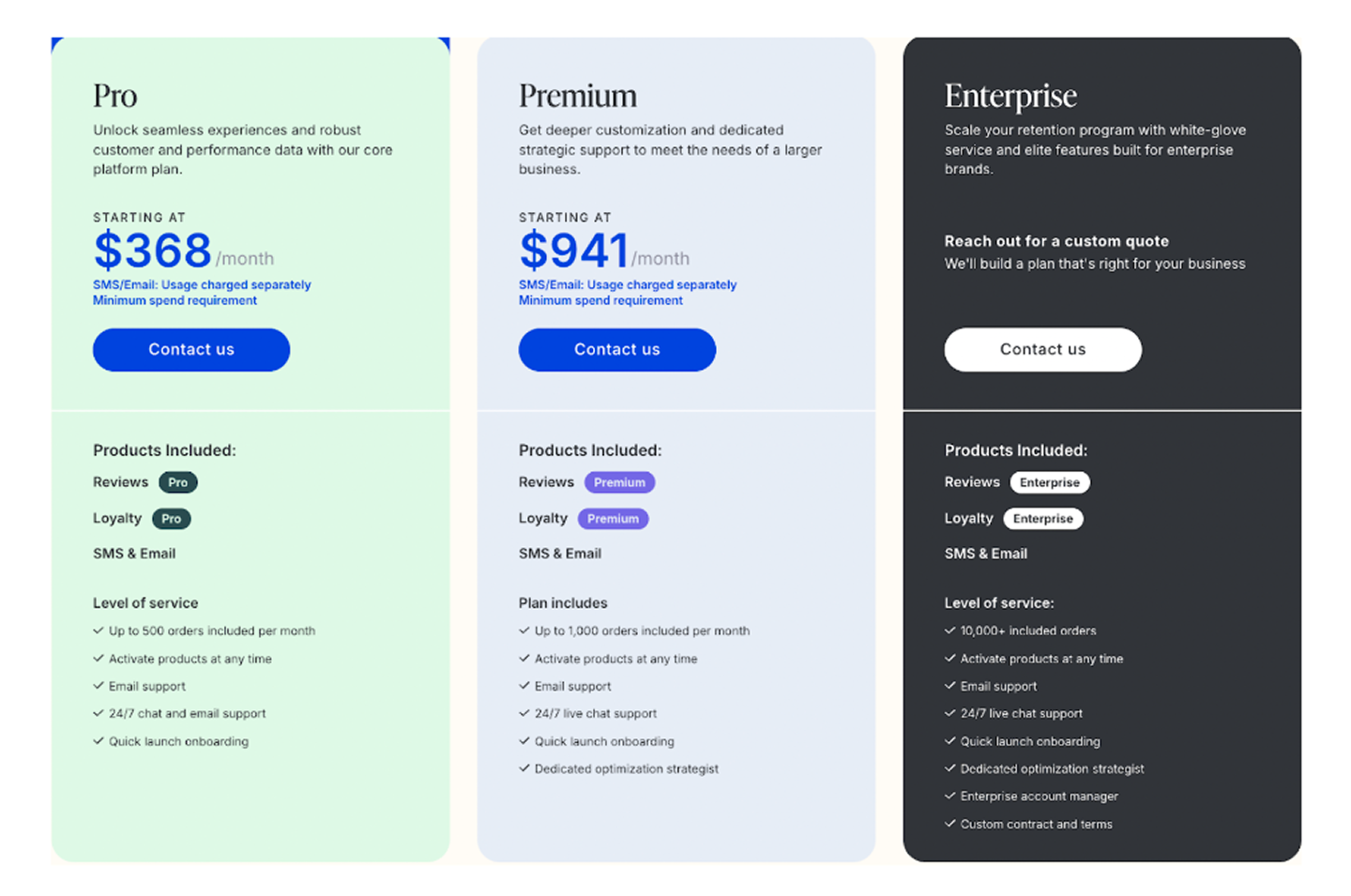
Overestimating order value may be needed to avoid billing issues, as this Shopify review for Yotpo points out:
.png)
Yotpo has a free plan for reviews and referrals, but not for Email and SMS.
Yotpo’s pros include:
The review below adequately sums up all that Yotpo does well, but also points out a significant blocker.
.png)
The tool is not ideal for small businesses due to the steep pricing (starting at $368 per month). With a price tag that heavy, the tool as a whole should be intuitive.
The review below identified that the pop-up and builder UX issues create friction.
.png)
.png)
Yotpo’s main dashboard is highly intuitive, but as you delve into the tool, you will find that its email builders and pop-up builders are flawed and clunky.
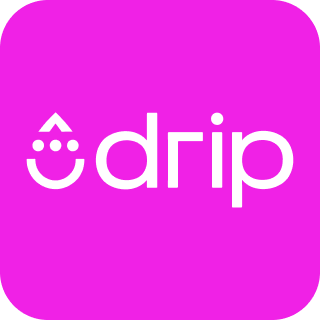
Drip
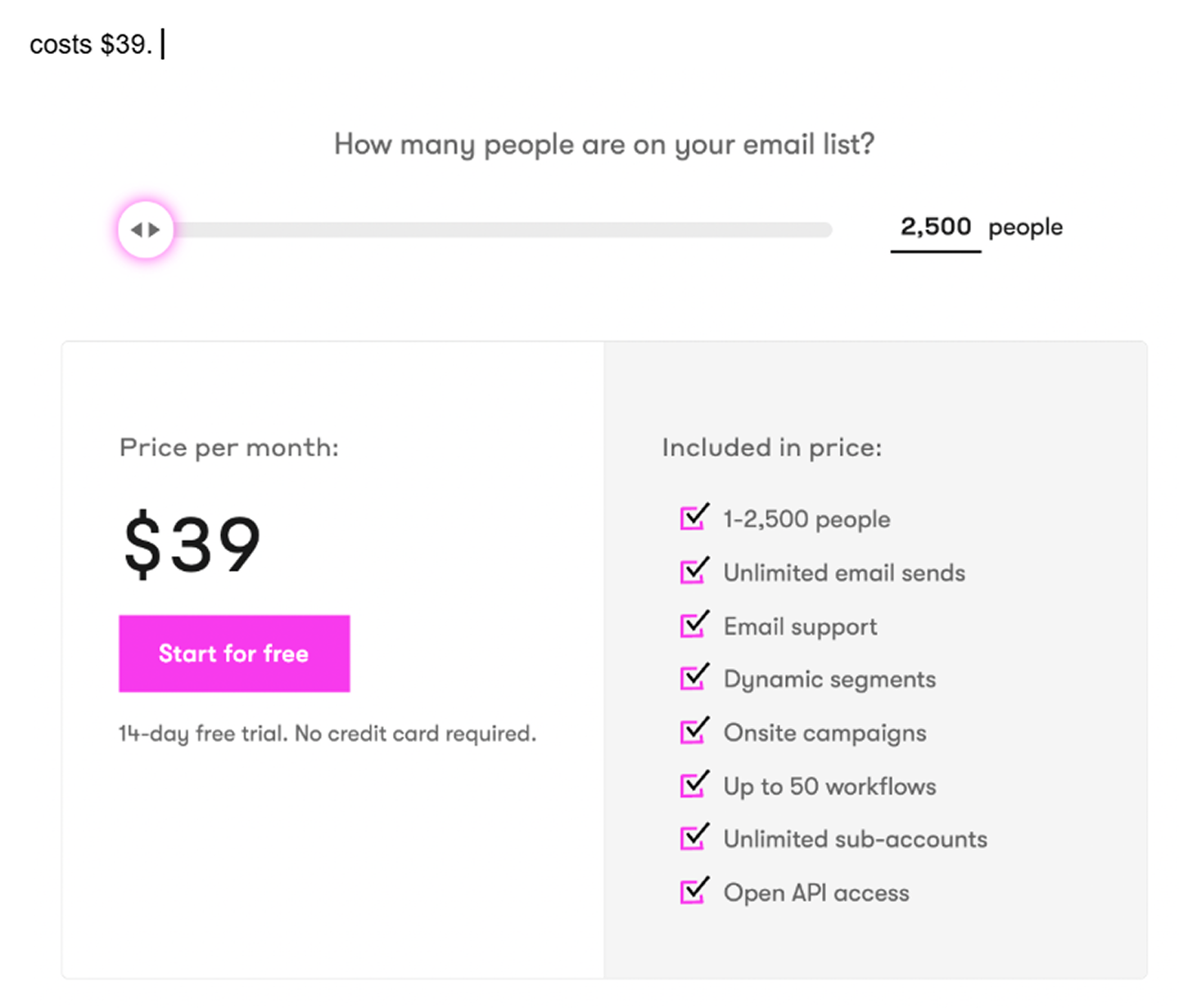
These plans do not include personalized onboarding or free migration (unlike PushOwl) unless you buy the $249/month plan for an email list of 17,500 people.
Free trial? Fourteen days only, so it is just a test run, basically.
Drip does what it offers. It is priced decently, and the customer support team helps Shopify marketers make the most out of their tool. Even the basic plan pulls its weight. This makes Drip a highly cost-effective tool, as this reviewer concludes:
.png)
Drip’s visual email builder is the most intuitive part of the platform, presenting Shopify marketers a clean template to formulate their notifications.
.png)
Where does Drip fall behind? The signup process and some of the flows are buggy, and the learning curve is steep, so keep those YouTube tutorials and customer support helplines handy.
.png)
No free plan and gated onboarding make Drip less cost-effective for smaller stores. Those with limited budgets and smaller teams may need onboarding and migration support, so this limitation in pricing is an unreasonable obstacle.
Drip has a visual email builder and plenty of AI-assists, making it super user-friendly.

Sendlane
The Professional Plan is $600/month, and it allows a minimum of 500K email sends. The breakdown of thresholds under Professional, Enterprise, and Enterprise Plus is not available on the pricing page.
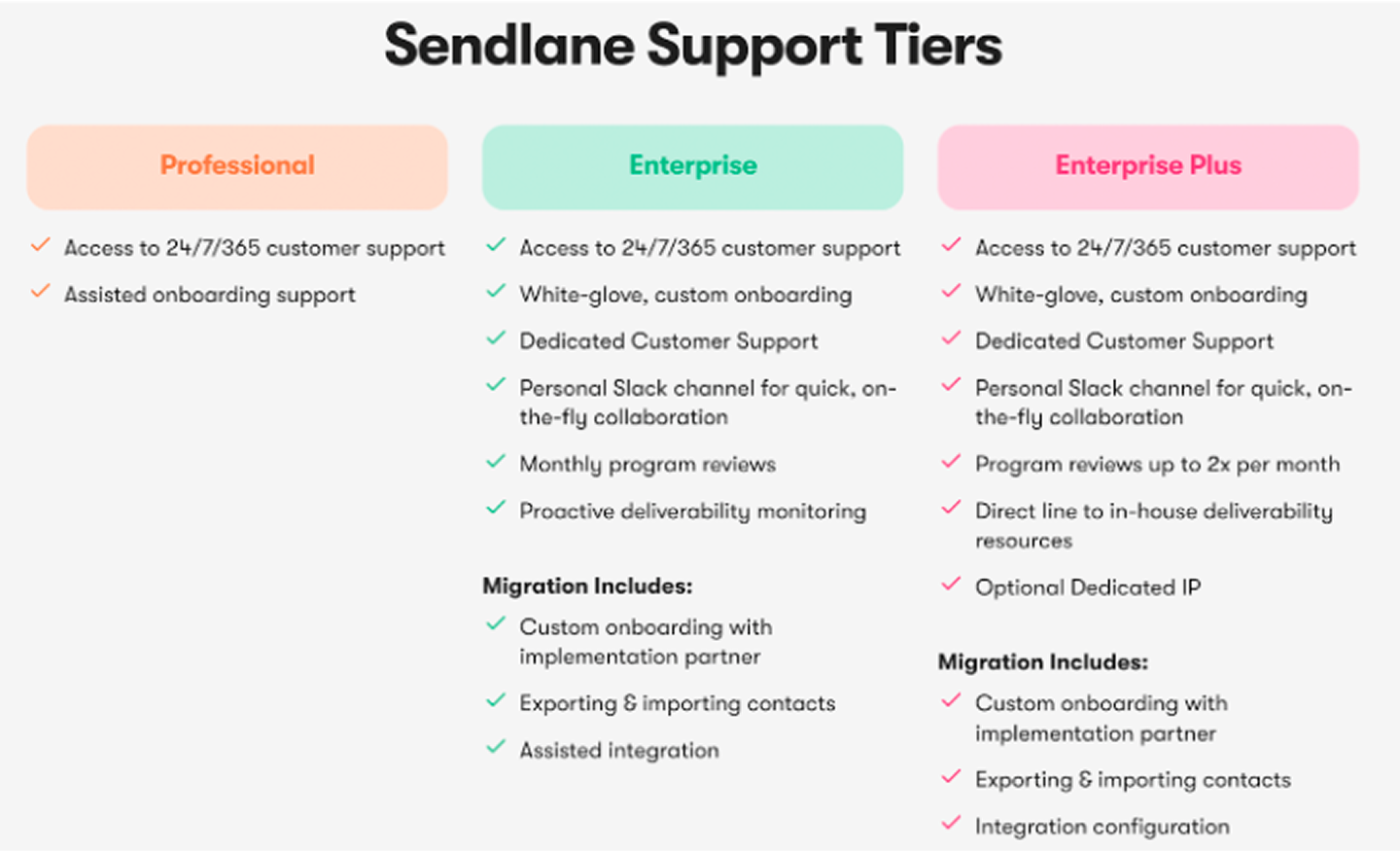
The free trial is for 60 days. It includes 500 email sends and 100 contacts, but no SMS.
Sendlane is known for its easy-to-use email builder and straightforward approach to email communication for marketers. It consolidates the job of marketing through Email + SMS, along with managing reviews, making it a cost-effective tool.
Like PushOwl, Sendlane has dedicated servers, which means deliverability is not an issue. It also offers solid support on all tiers, with dedicated reps and feature rollouts based on user feedback.
.png)
Complaints related to Sendlane stem from its poor integration capabilities. It does not support many key e-commerce integrations, and operating it in isolation will mean that you need to add more tools or build custom integrations, which can add to your marketing team’s never-ending to-do list.
Sendlane is super easy to use because of a clean dashboard and highly organized functionalities.
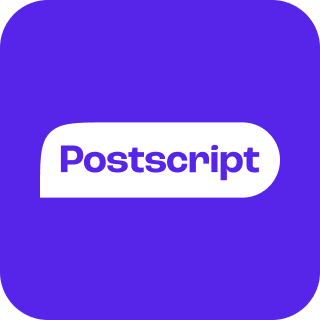
Postscript
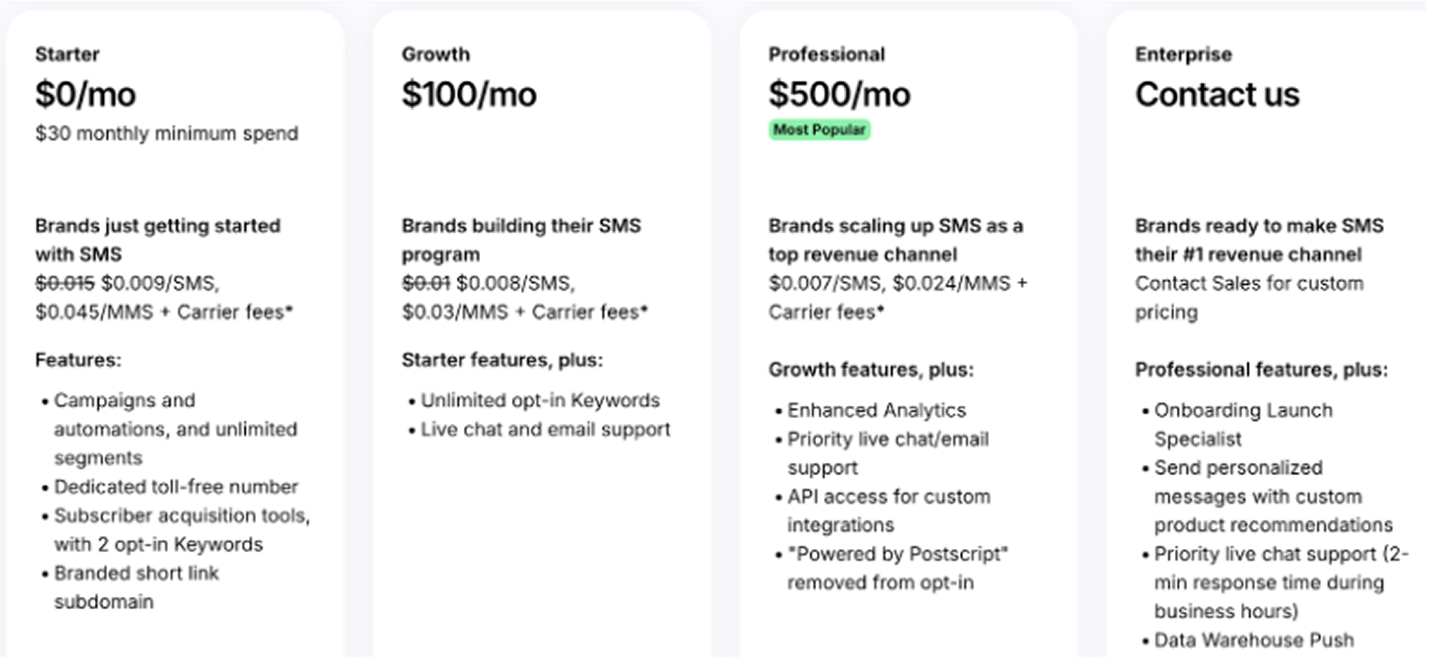
Shopify stores with smaller teams who need support by virtue of their size may find it tricky to buy a higher tier due to the increased costs, which means they cannot unlock priority support. As a result, they will end up paying extra just to make the best out of the plan through assistance.
Other Omnisend alternatives, such as PushOwl and Yotpo, do not provide different levels of support depending on the plan. The level of customer support is the same regardless of the plan you pick, thus making it more accessible to smaller teams with smaller budgets.
.png)
.png)
.png)
Some users report being billed even without usage.
.png)
Another complaint comes from users of the cheaper plans. They do not receive priority support, which means their issues are not resolved in a timely manner, or sometimes, at all.
.png)
Overall, Postscript has quite a few benefits but a fair share of flaws as well, so keep these in mind while assessing it as an Omnisend alternative.
Rated 9.4 on G2, Postscript has simple SMS campaign setups, thus providing a seamless experience.
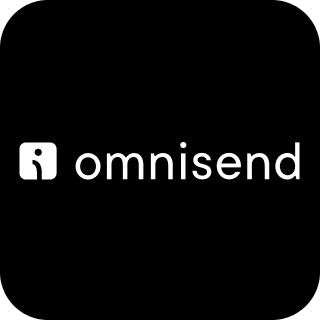
Top Use Cases and Features
Omnisend offers the following to its Shopify store clients:
Omnisend Pricing (Is it Cost-Effective?)
.png)
.png)
.png)
Omnisend Pros and Cons
.png)
.png)
.png)
.png)
.png)
Ease of Use With Omnisend
Dive in here to know all about whether your tool of choice integrates with other tools in your marketing stack:
Automation and Segmentation of Omnisend Alternatives
Reporting and Analytics Capabilities of Omnisend Alternatives
Based on all the pros, cons, and complaints related to customer support, this is a handy sheet regarding how Omnisend and its alternatives handle customer issues:
Omnisend is the tool for you if you want a cost-effective tool that is easy to use and has the bare minimum in place. Nothing bad, but nothing fancy either. It is ideal for small to medium-sized Shopify stores.
But if consistent customer support is a major priority, then the following Omnisend alternatives will be a better fit:
- Email + SMS + Push + WhatsApp
- A solid forever-free plan
- An affordable, easy-to-use, omnichannel retention platform
- A way to scale without CRM complexity
- White-glove migration and continuous + reliable customer support
- Shopify and WooCommerce merchants
- Startups
- Mid-sized D2C brands and agencies handling multiple ecommerce stores
- Email + SMS + reviews
- A free starter plan for reviews
- Tight Shopify and e-commerce-native integrations
- Excellent support
- Highly intuitive UI + easy navigation + powerful automations + advanced segmentation
- Visual email campaign builders
- A free trial + cost-effective tool
- Granular segmentation
- Excellent customer support
- A Shopify store looking to build its customer base and revenue only through emails
- Email + SMS only, along with reviews
- Easy-to-use tool
- Complex pop-ups and review management
- A tool that does not stop at Shopify; includes Miva, custom storefronts, etc.
- 60-day free trials
- High deliverability
- Excellent customer support across all tiers
- A Shopify, WooCommerce, or Miva merchant who needs enterprise-like tools without the enterprise bloat
- A team that needs 1:1 training, onboarding, and responsive support
- An email marketer or retention lead frustrated with deliverability or shallow data
- A Shopify-native SMS platform that is built specifically for ecommerce
- A basic free plan for your SMS campaigns
- Plug-and-play SMS templates
- Personalized customer support (if you are willing to pay more for it)
- An agency looking to layer SMS on top of an Email tool
- A D2C brand that is already using Shopify and wants to scale SMS fast
